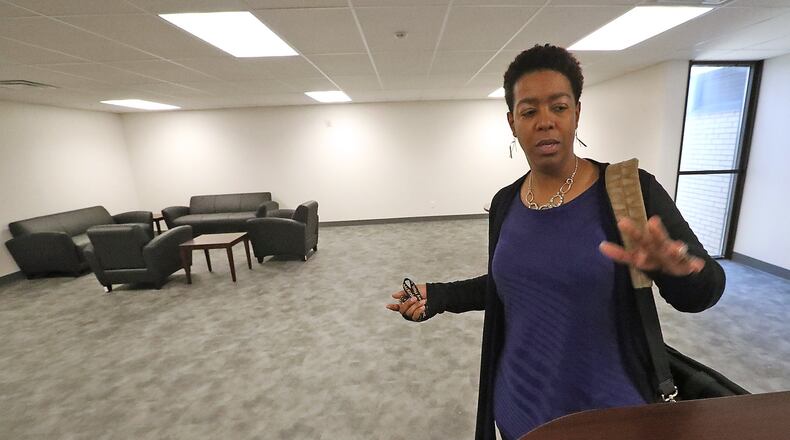RELATED: Drug crisis in Ohio: What solutions are making a difference?
DETAILS: ‘Perfect’ Springfield couple battles addictions, finds recovery
The new location will be able to house women and men's outpatient programs, medication assisted treatment and services provided to inmates. It will also provide men's residential treatment. The current center can house 12 men.
“The new facility can house up to 16 and there’s about two to a room,” she said.
The new property also will allow McKinley Hall to expand and offer new services at time when the need has never been higher.
Clark County saw at least 101 suspected drug overdose deaths as of mid-December, including 90 confirmed and 11 pending autopsies, Clark County Coroner Dr. Richard Marsh said. The majority have been caused by fentanyl, an illegal synthetic opioid that's 50 times more powerful than heroin.
MAP: Where drug overdose deaths happen in Clark County
“When I think about years ago when I started, we did counseling and that’s all we did,” Doolittle said. “With this new epidemic, we have all these other supportive services that are available so you are able to come here and get all of your needs met.”
For example, the new building will offer a room for children while their parents are being counseled.
McKinley Hall expects to open its doors in March and some staff have already moved in. The new building was bought in 2015 and has had a full renovation, paid for through savings, a capital grant from the state and money from the local Mental Health and Recovery Board.
The project ran into several delays.
“Someone had vandalized one of the rooms in the middle of winter and it was location where there was a hot and a cold pipes,” she said. “The pipes busted and destroyed about 3,000 square feet of the building, which was our women’s programming area.”
READ MORE: Vandals delay $2.5M expansion at Springfield drug rehab center
A few months later, someone stole the copper from the HVAC units in the back of the building.
“Then there was heavy rain. The way that the architects built up the ground on the old hospital that was behind us, all the water ran off and destroyed the entire basement and we had to have additional renovations,” Doolittle said said. “All the walls had to come out.”
The new center has boosted morale among the staff, Doolittle said, and they hope it will do the same for those seeking help.
“There are never really these nice state-of-the-art kinds of buildings that are nice to the eyes,” she said. “It’s often some little place you can find and cross your fingers that people can fit, your furniture is often hand-me-downs.”
Tim Board is one of those seeking help at McKinley Hall. He’s excited about the expansion and hopes to move into the new center soon.
He believes it will help him get better. Board has been addicted to heroin for nine years and overdosed twice, he said.
“It’s been good, it feels great,” he said. “I’m 20 days clean. I’m planning on making it a lot more.”
BY THE NUMBERS:
$2.3 million: Cost of the project to expand McKinley Hall’s treatment center
$250,000: Cost of the building
16: The number of men now allowed in residential treatment at the new center. The previous number was 12.
ABOUT THIS SERIES
The Springfield News-Sun has written extensively about opioid and heroin problems in Clark County in the past five years, including stories about multiple overdoses in one weekend and efforts to expand treatment options. The News-Sun will continue to take a deep dive into the community’s drug epidemic and what local leaders are doing to solve the problem.
Need help right now?
Crisis hotline: Dial 2-1-1 to be connected to mental health and addiction services in Champaign and Clark counties.
About the Author
